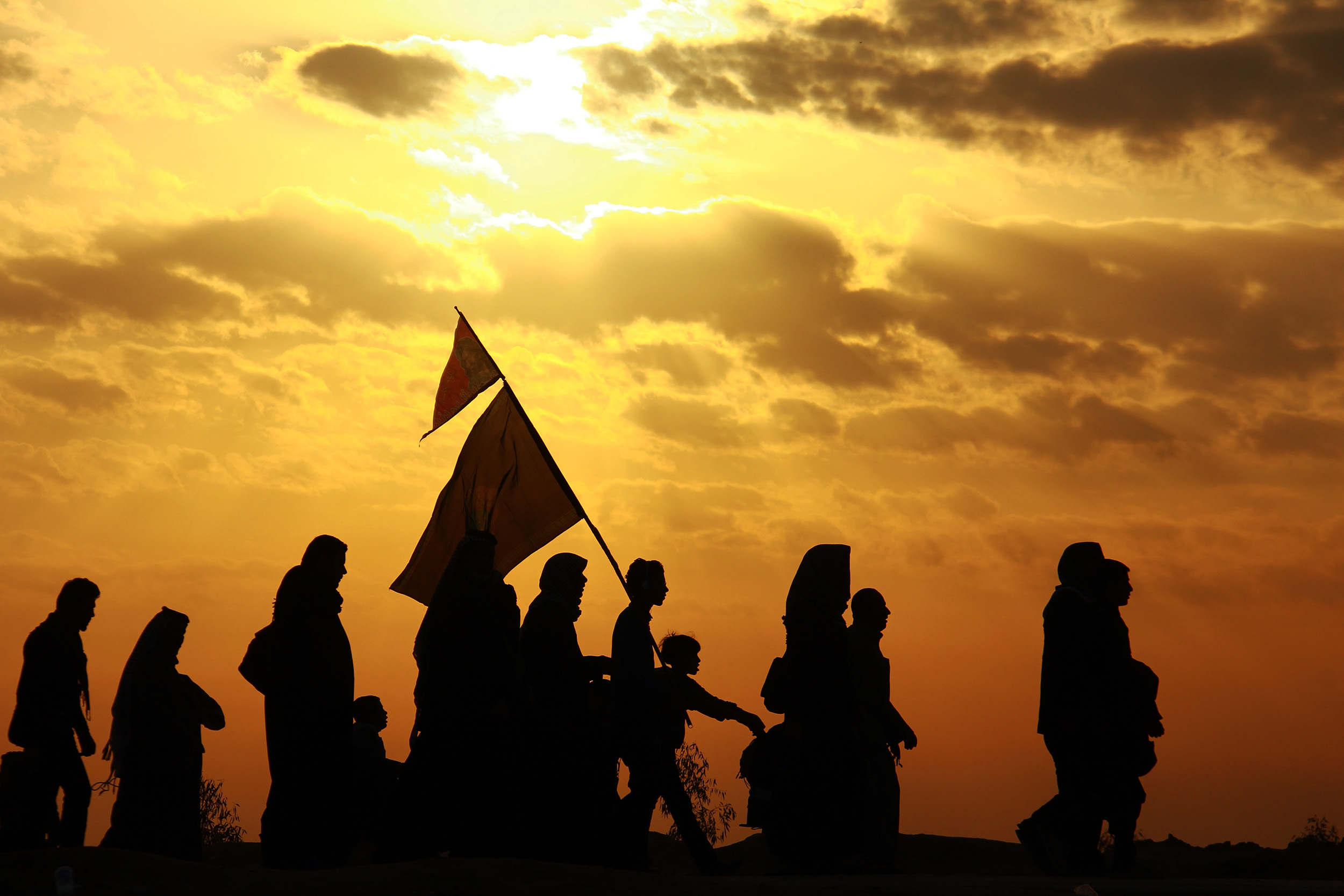

What Does Islam Say About Drugs?
The young Muslims of today are facing an ever-increasing number of plights, one of the most important of which is drugs. But, what is Islam’s view on this issue? How should Muslims regard drugs? To know this, we must see what the Quran and the prophet’s and Imams’ conducts (Sirah) say regarding narcotics.
Since drugs were not known at the advent of Islam, therefore we cannot see any direct evidence in the Sirah on this issue throughout history; so the only way is referring to general rules and principles of jurisprudence.
In general, it has been indicated, firstly, that since drug consuming inflicts tremendous losses, it is considered as forbidden (Haram), unless medical emergencies and necessities require it. Secondly, buying and selling it, is forbidden except where rational, lawful benefits are received, such as medicine production. This form of usage must be under precise official supervision and control. Based on these facts, Muslim scholars hammered out four rational and crystal clear reasons for the forbiddance of drug consumption:
1. All Intoxicants Are Unlawful
All intoxicants are regarded as forbidden because of their inebriant repercussions, as well as their physical-mental adverse effects on individuals and communities. Moreover, drug consumption causes moral degeneration, body and intellect corruption, inflicts severe cultural, social and economic losses and finally ruins societies.
Someone who suffers drug addiction is not able to oversee his behavior, loses his zeal, motivation and common sense, and as a result is ready to do anything to obtain drugs without any consideration. A Drug-addicted person, also, cannot fully adhere to his Islamic practices, since drugs turn him into an irresponsible and a total inefficacious human.
2. The Method of the Wise
Wise men throughout history always avoided using drugs and this attitude is entirely in line with the Islamic law (Shari’a). Following in the footsteps of great personalities and considering their lifestyle is an authoritative way and a logical ground to reason against drug consumption.
3. “No Harming, nor Reciprocating Harm”
This rule is one the most important and fundamental jurisprudential rules which is applied to a wide range of Islamic teachings. On this basis, people should not engage in deeds that inflict excessive losses. Today, we can say from experience that drug consumption encompasses significant social and individual damages and creates completely irresponsible generations. Accordingly, the rule of “No harming nor reciprocating harm” can provide us with the most rational ground to argue against drug consumption; its adverse effects are not only directed to the drug-addicted person himself/herself but also his/her family, relatives and even the whole society.
Furthermore, drug addiction is one of the most significant causes of self-destructing and life-ruining behaviors. We have a clear affirmation about this reality as Allah Almighty says: “and do not cast yourselves with your own hands into destruction” (2:195).

4. Lawfulness of Good Things and Prohibition of Vicious Ones
In Islam, every evil thing which results in heavy losses is forbidden (Haram); clearly, the drug with its many negative effects on a broad spectrum of people is categorized as highly harmful. There is a vivid indication on this claim in the Holy Quran: “He makes lawful to them all the good things and forbids them from all vicious things” (7:157).
The weakness in wisdom and perception power can be considered among the most important disadvantages of drug consumption; therefore, Islam names “common sense preservation” as the most important obligation for a Muslim. Now it is easy to understand why the Islamic law (Shari’a) bans all sorts of intoxicants like alcohol, drugs, etc.
It is noteworthy that based on the first-ever report on worldwide addiction statistics released by researchers, which uses data from sources including the World Health Organization and the United Nations Office on Drugs and Crime, drug addiction has reached epidemic levels across the globe and there were 230 million drug users worldwide in 2015. The report found that drug takes a higher toll on “productive years of life lost” than does any other intoxicant. That means people dependent on drugs not only die younger but also have poor health over a more extended period. Drugs affect their work, relationships, and consequently reduce their quality of life [1].
These results prove how far Islam predicts the disadvantages of using drugs and why it is declared as forbidden (Haram) on almost all of the Islamic decrees.
References:
Share This Article

Narrations on Karbala and the pilgrimage of Imam Hussain (as) part2
Hadith 21: The Condition of Honor
Imam Sadiq (as) said: Whoever wants to be in the neighborhood of the Prophet (pbuh&HP) and next to Ali (AS) and Fatima (AS) should not leave the pilgrimage of Imam Hussain (AS).
Wasa'il al-Shi'ah, vol. 10, p. 331, p. 39
Hadith 22: Pilgrimage, Divine Duty
Imam Sadiq (as) said: If one of you observes the Ihram of Hajj for the entire of his life but does not visit Imam Hussain (as), he has left the right of the Messenger of Allah (PBUH&HP) because the right of Hussain (as) is a divine duty and obligatory for every Muslim.
Wasa'il al-Shi'ah, vol. 10, p. 333
Hadith 23: Karbala, the Kaaba of Perfection
Imam Sadiq (as) said: Whoever does not visit the grave of Imam Hussain (as) until he dies, his faith will be incomplete and his religion will be incomplete, and when he goes to heaven, he will be lower than the believers there.
Wasa'il al-Shi'ah, vol. 10, p. .335
Hadith 24: From Pilgrimage to Martyrdom
Imam Sadiq (as) said: Do not leave the pilgrimage of Imam Hussain (as) and recommend it to your friends and companions as well! May Allah prolong your life, increase your sustenance, and may Allah bless you alive and you will not die except as a martyr.
Wasa'il al-Shi'ah vol. 10, p. 335
Hadith 25: The Hadith of Love
It was narrated from Imam Sadiq (as) that he said: Whoever Allah wants good, will put the love of Hussain (AS) and his pilgrimage in his heart, and whoever Allah wants bad, will have him hate Hussain (AS) and anxious with his pilgrimage.
Wasa'il al-Shi'ah vol. 10, p. 388, Sea of Lights, vol. 98, p. 76
Hadith 26: A Sign of Being a Shiite
Imam Sadiq (as) said: Whoever does not visit the grave of Imam Hussain and dies as our Shiite and dies, is not our Shiite, and even if he is from the people of Paradise, he is the guest of the people of Paradise.
Kamel Al-Ziyarat, p. 193, Bihar Al-Anwar, vol. 98, p.4
Hadith 27: Ascension Platform
Imam Sadiq (as) said: Whoever visits the grave of Hussain (as) and has knowledge of the right of that Imam, Allah Almighty will register him in the highest rank.
Man la yahzurul Faqih, vol. 2, p.581
Hadith 28: The School of Knowledge
Imam Musa Kadhim (as) said: The least reward that is given to the pilgrim of Imam Hussain (as) on the banks of the Euphrates is that all his sins, before and after, are forgiven. Provided that he knows the right, honor and guardianship of that Imam.
Mustadrak al-Wasa'il, vol. 10, p. 236, quoting Kamil al-Ziyarat, p. 138
Hadith 29: Like the Pilgrimage of Allah
Imam Reza (as) said: Whoever visits the grave of Imam Hussain (as) on the banks of the Euphrates is like the one who has visited Allah.
Mustadrak al-Wasa'il, vol. 10, p. 250, quoting in full
Chapter Three: Ashura and Arbaeen
Hadith 30: Pilgrimage at Ashura
Imam Sadiq (as) said: Whoever visits Imam Hussain (as) on the day of Ashura, heaven will be obligatory for him.
Iqbal al-A'mal, p. 568
Hadith 31: Above Prosperity
Imam Sadiq (as) said: Whoever wakes up on the night of Ashura next to the shrine of Imam Hussain (as), on the Day of Judgment he will rush to Allah stained in his blood, like someone who was killed in Karbala next to Imam Hussain (as).
Wasaelu shiah, vol. 10, p.372
Hadith 32: Signs of Faith
Imam Hassan Askari (as) said: The signs of a believer are five:
1 Fifty prayers
2 Arbaeen pilgrimage
3 Ring in the right hand
4 Prostrating on the ground
5 Saying loudly the name of Allah, (Bismillah Rahman Rahim)
Wasaelu shia, vol. 10, p. 373, and also Al-Tahdhib, vol. 6, p. 52
Chapter Four: Torbat and Tasbih of Love
Hadith 33: His Porch
The Prophet of Islam (PBUH&HP) said: Know that the answer to prayer is under the dome of his shrine and healing is in his soil, and the Imams (as) are of his children.
Mustadrak al-Wasa'il, vol. 10, p.335
Hadith 34: Soil and Training
Imam Sadiq (as) said: Take your children with the soil of Hussain (as) (Karbala) because the soil of Karbala insures your children.
Wasaelu Shiah, vol. 10, p.410
Hadith 35: The Greatest Medicine
Imam Sadiq (as) said: The cure for any pain is in the soil (torbat) of Hussain (as) and it is the greatest medicine. Kamil Al-Ziyarat, p. 275 and Wasa'il al-Shi'ah, vol. 10, p. 410
Hadith 36: Torbat (soil of Karbala) and seven hijabs
Imam Sadiq (as) said: Prostration on the soil of Hussain (as) tears the seven veils.
Mesbah al-Muttahid, p. 511, and Bihar al-Anwar, vol. 98, p. 135
Hadith 37: Prostration on the Soil of Love
Imam Sadiq (as) did not prostrate on the ground except on the soil of Hussain (as) and he did this in violence for the sake of Allah.
Wasailu shiah vol. 3, p.608
Hadith 38: Rosary with the Soil of Karbala
Imam Sadiq (as) said: Prostration on the soil of Karbala can light up to the seventh earth, and whoever has a rosary from the soil of the shrine of Hussain (as) with him, is a truthful person, even if he says nothing.
Man la yahzurulFaqih vol 1 p 268
Hadith 39: Healing Soil
Imam Kadhim (as) while narrating a hadith announcing his death, said: do not take anything from the soil of my grave to seek blessings, because it is forbidden for us to eat any soil except the soil of my grandfather Hussain (as), Allah Almighty has healed only the soil of Karbala for the Shiites and our friends.
Jami ahadith, vol. 12, p.533
Hadith 40: One of the Four Needs
Imam Musa ibn Ja'far (as) said: Our needs are four things:
1. Prayer mat on which prayers are offered.
2. Rings on the finger
3. Toothbrush with which to brush teeth
4. A rosary from the shrine of Imam Hussain (as) Tahdhib al-Ahkam, vol. 6, p. 75
Read More

What Are My Responsibilities Towards Others? Part 1
One of the significant parts of responsibility in Islam is our responsibilities towards other people in our lives. Human beings are social creatures. Being in the society, humans are no more obliged to provide all their basic needs on their own. They might benefit from the skills of other people in various fields.
And in return, every individual should do something for what he\she gains from others. It means that everyone is responsible towards other people in the society. Being emphasized in Islamic teachings, it is over every Muslim to respect the rights of other people with the priority given respectively to his\her nuclear family, relatives, neighbors, other Muslims and other human beings [1].
The Rights of the Family as the Primary Responsibility in Islam towards Others
Family as the basic unit of the society is the first community where one’s social interactions begin. The support and peace that one receives in the family make him\her responsible towards them. Thus, the concept of responsibility in Islam towards other begins with our duty towards our family.
Responsibilities towards Parents
The rights that parents have over children have been discussed in another article, but briefly, they include:
Obedience to parents as far as it is not against God’s orders or unjust. Even in those cases, one should respect his\her parents [i],;
Having deep respect and great affection for them;
Being humble, using a gentle voice and kind words when talking to them;
Praying and asking mercy for them (17:24), whether they are alive or not;
Offering father the property, honor, and life [2];
The rights of the mother are superior to those of father [3] such that they can never be returned unless with divine providence.
The Responsibility in Islam towards the Wife
A detailed review of husbands’ duties was presented in another article. These duties can be summarized as:
Paying the marriage portion (Sedaq);
Paying for the living expenses of the wife (Nafaqah) [4];
Paying wife for the house chores if she asks for [ii], [5];
Treating the family well, including wife;
Helping the wife in house chores [6];
Ignoring minor errors of wife and forgiving her major mistakes.
The Responsibility in Islam towards the Husband
The rights of the husband over his wife have been fully discussed before. Briefly:
Husband as the manager of the family is the only person who is fully responsible for all affairs of the family. Accordingly, every member of the family should obey him;
Wife as the source of peace and solace to the husband (30:21) has to submit herself to her husband except during menstruation sexually [iii].
Responsibilities towards Children
The rights of children over parents begin before the conception and continue a lifetime. These rights already discussed in previous articles, can be summarized as:
Great care for the act of conception emphasized in Islamic teachings, which are important for the physical, mental and spiritual health of the child in the future;
Providing the necessary care for mother during the pregnancy to give birth to a healthy baby;
Reciting the Call to Prayer in the ears of the newborn];
Giving the baby a proper name at birth;
Breastfeeding the baby until the approximate age of two [7];
Behave the children nicely and respectfully;
Gradually familiarizing the children with religion after the age of Three [8];
Starting necessary religious education and guidance in belief and act during middle childhood;
Providing academic education at school;
Teaching them moral characteristics and attributes;
Helping the children to perceive the physical and emotional changes of puberty to experience a pleasant transition during this period;
Allowing children to participate in every decision-making in the family when they are adults.
Preparing the children for the responsibilities of married life at the age of marriage, helping them to choose a proper mate for themselves, and providing them with some of the basic needs of a small family.
Responsibilities towards Brothers [iv]
Imam Ali (AS) addresses Malik Al-Ashtar in a letter and explains that “people are either your religious brother or they are humans just like you. They might make mistakes deliberately or unintentionally, as you do. Hence, forgive them just as you hope God to forgive you”. Imam Sajjad (AS) also enumerates the rights of brothers over each other [4]:
You should consider your brother as a powerful hand which is ready to help, a refuge in case of troubles, and a power upon whom you can always rely;
You should not take your brother as a weapon with which to disobey God, nor as a means by which to violate God's rights;
You should never forget to help your brother against his\her self-incitement and to support him\her against his\her enemies;
You should offer your brother wise counsel and should never leave him\her alone in case of need. However, if your brother does not obey God’s commands, you have to prefer God’s satisfaction with his\hers.
Notes:
[i] For more information, see ref. [3].
[ii] However, some of these rights depend on how the wife respects her husband’s rights.
[iii] Much care is also paid to the sexual needs of wives in Islamic teachings, and there exist enough instructions on how to satisfy them.
[iv] The term “brother” here is not confined to siblings; it also refers to every two or more companions of the same religion.
References:
- A. Javadi Amoli, “Mafatih al-Hayat”, p. 219.
- Ibn Babawayh,”Fiqh al-Ridha (AS)”, p. 334.
- A. Javadi Amoli, “Mafatih al-Hayat”, p. 224.
- Imam Zayn al-'Abidin (AS), “Treatise On Rights (Risalat al-Huquq)”.
- H. Vahid Khorasani, “Islamic Laws”, Create Space Independent Publishing, 2014, p. 393.
- A. Javadi Amoli, “Mafatih al-Hayat”, p. 257.
- S. H. al-Amili, “Wasail al-Shia”, vol. 2, p. 618
- H. F. Tabarsi, “Makarim al-akhlaq”, p. 115.
Read More

